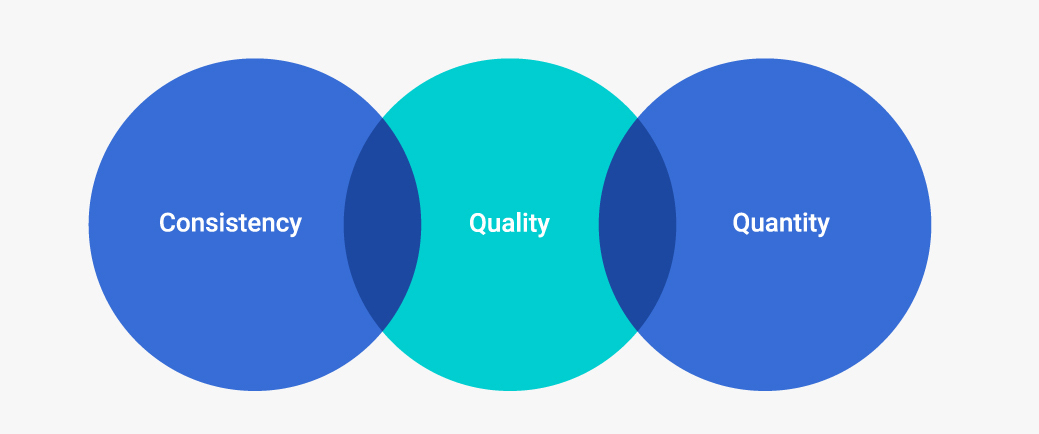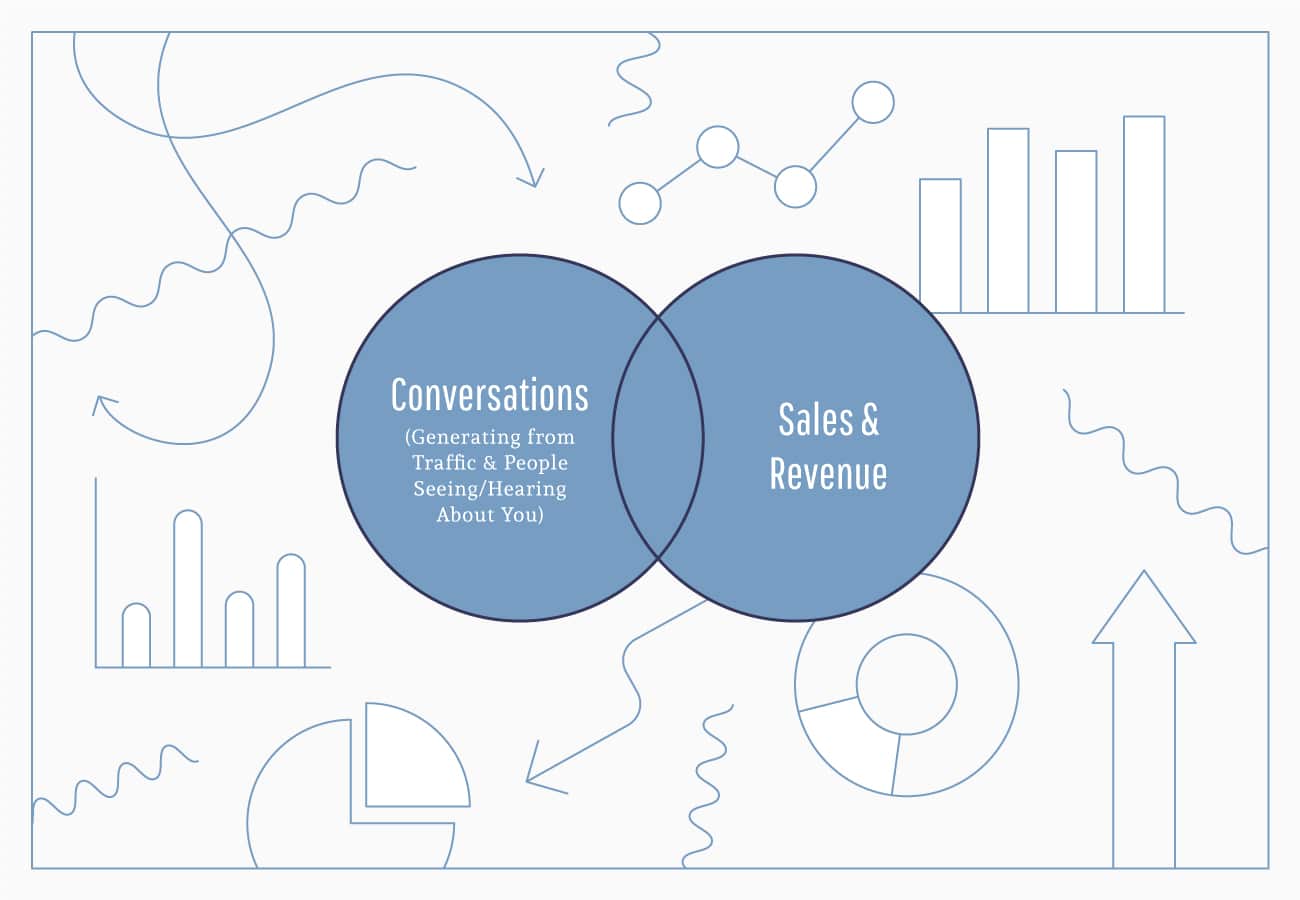“What should I write in my blog?” 🤔
If I had a penny for all the times I’ve been asked that question, I’d be richer than Jeff Bezos.
Don’t worry if you’re asking the same question. You’re definitely not alone.
Even the biggest bloggers, businesses, and brands get stuck when generating blog ideas.
And with studies showing that readers consume at least 3-5 pieces of content before engaging with a vendor, being consistent with your blog publishing is critical to your success.
With the correct approach and mindset, you can consistently develop interesting blog posts for your readership.
As a result, your content marketing efforts are bound to pay off, resulting in faster business growth.
In this post, we’ll delve into proven strategies and tips to help you generate captivating blog ideas. From utilizing blog post templates to conducting keyword research for SEO, there are numerous ways to ensure your content remains relevant and appealing.
We’ll also discuss how social media marketing is crucial in generating topic ideas, promoting your posts, and keeping readers interested.
Whether you’re starting a travel blog or a fashion-focused Wix blog, our step-by-step guide will provide valuable insights on crafting compelling content across various niches.
So let’s begin exploring the secrets behind answering the ever-important question: “What should I write in my blog?”
Table of Contents:
- The Importance of Consistently Publishing Blog Posts
- “What Should I Write on My Blog?” 5 Tips for Generating Blog Ideas
- “What Should I Write in My Blog?” Consider Long-form Content
- Time To Be Consistent With Your Blog Writing!
The Importance of Consistently Publishing Blog Posts
Consistently publishing blog posts is vital for maintaining an active website. That’s especially true if you couple it with quality and quantity.

Consistent blog publishing also has many other benefits, including:
Fresh and Engaging Content
Search engines and users love fresh content. ❤️
That’s why search engines promote sites that regularly publish fresh content or update old blog posts.
As for your visitors, the more you serve fresh, engaging, helpful content, the more they’ll keep coming back for more. It also leads to longer time spent on your site and power bounce rates. Both are positive signals that your site provides valuable content. As a result, you’ll enjoy a boost in your SEO.
Improved Search Engine Visibility
By consistently publishing blog posts, you give search engines more content to index and crawl. This increases the chances of your website being discovered and ranked higher in search engine results pages (SERPs) for relevant keywords. As a result, your website can attract more organic traffic and potential customers.
Increased Website Traffic
Each new blog post presents an opportunity to attract new visitors to your website. With proper optimization and promotion, your blog posts can generate traffic from search engines, social media platforms, email marketing campaigns, and other channels.
Over time, a consistent flow of blog posts can contribute to a steady increase in website traffic. And this means organic leads and business growth.
Establishing Authority and Expertise
Publishing high-quality and informative blog posts helps establish your brand as an authority in your industry or niche. It showcases your expertise, knowledge, and insights. These are factors that can help you build trust with your audience.
As you consistently provide valuable content, visitors are more likely to perceive your brand as a reliable source of information, increasing their confidence in your products or services.
Supports Your Content Marketing
Blogging is a fundamental element of a comprehensive content marketing strategy. It provides a platform to create and share valuable content that can be repurposed, shared on social media, incorporated into email newsletters, and linked to other marketing channels.
Consistently publishing blog posts enables you to fuel your content marketing efforts and leverage the content across various platforms.
“What Should I Write On My Blog?” 5 Tips for Generating Blog Ideas
Struggling to come up with topic ideas for your blog?
Here are some tips to help you consistently publish content to keep readers interested in your brand and product.
1. Know Your Target Audience
Before typing a single word on your blog, you must understand your target audience.

Consider their interests, needs, and pain points.
What topics are they likely to find valuable and engaging?
Put yourself in their shoes and think about what kind of information or solutions they seek.
2. Conduct Keyword Research
Conduct keyword research to identify relevant topics and popular search queries related to your niche. SEO tools like Google Keyword Planner, SEMrush, or Moz Keyword Explorer can help you discover keywords your target audience uses to find content online.
And once you find good keywords, you can create content around them. 📝

You can use these keywords as a basis for writing content for your blog.
3. Leverage User Feedback
User feedback is a goldmine of blog topic ideas.
Pay attention to the questions, comments, and feedback from your customers and website visitors. You can also reference social media posts to get a peek into hot topics they’re talking about.
What are their common concerns or inquiries?
Address these questions in your blog posts to provide helpful information and demonstrate that you understand their needs.
By joining in the conversations, you can better position yourself as a friendly voice they can trust.

4. Consider Industry Trends
Stay current with the latest news, trends, and developments in your industry and write blog posts that discuss and provide insights on these topics. This positions your brand as knowledgeable and current, and it can attract readers who are interested in industry-related updates.
This strategy is best suited for bloggers and small businesses in fast-paced niches. For example, a fashion blog can create tons of content based on the everchanging trends and news in the industry.
5. How-to Guides and Tutorials
Another powerful way of generating blog ideas is by considering how you can help your website visitors improve their skills. You can do this by creating blog posts that offer step-by-step guides, tutorials, or instructional content.
To do this, identify tasks or processes your audience might need assistance with and break them down into actionable steps. Visual aids, screenshots, or videos can enhance the effectiveness of these guides.
When creating how-to posts, put yourself in your readers’ shoes and ensure you cover the main points thoroughly.
These are also easier to create as you can create blog post templates to follow. Plus, because they hinge on your expertise, you don’t need a lot of research.
“What Should I Write In My Blog?” Consider Long-form Content
To keep your business competitive, long-form content marketing is an essential strategy to consider. This approach helps you establish authority in your niche, drives organic traffic, and leads to sustainable growth.
To create winning long-form content, you need a process. Guess what? I’ve got it for you right here. 🎉 Get my Content Process Blueprint for the full map to creating profitable content from A to Z.
Let’s zero in on some of the most important benefits of creating long-form content on your site.
The Benefits of Long-Form Content Marketing
- Higher search engine rankings: Google loves long-form content as it provides more value to users. By creating comprehensive articles on relevant topics, you can improve your chances of ranking higher in search results. Check out this study by Backlinko, which shows a positive correlation between longer content and better rankings.
- Better user engagement: When visitors spend more time reading your content, they’re likely to engage with your brand further – be it through comments, social shares, or even making a purchase. High-quality long-form content keeps readers hooked and encourages them to explore other parts of your website.
- In-depth information builds trust: Detailed articles demonstrate expertise in a particular subject matter. As readers gain valuable insights from your posts, they’ll begin trusting you as an industry expert – eventually turning into loyal customers.
- Natural link-building opportunities: Other websites are more inclined to link back to well-researched and informative pieces than short ones lacking substance. Earning high-quality backlinks improves domain authority while boosting SEO efforts simultaneously.
Tips for Creating Effective Long-Form Content
To make the most out of long-form content marketing, follow these best practices:
- Focus on quality over quantity: Instead of churning out multiple short articles, invest time and resources into crafting well-researched pieces that provide actionable insights. It’s preferable to create a few top-notch posts rather than numerous inferior ones.
- Use relevant keywords strategically: Conduct thorough keyword research to identify phrases your target audience is searching for. Incorporate these terms naturally throughout the article. This helps improve SEO while ensuring readability remains intact.
- Add visuals and multimedia elements: Break up long blocks of text with images, infographics, or videos that complement the information you’re presenting. This not only enhances user experience but also makes your content more shareable across social media platforms.
- Promote your content effectively: Don’t just hit “publish” and hope for the best. Actively promote your long-form articles through email newsletters, social media channels, or even paid advertising campaigns if necessary. The more eyes on your content, the greater its potential impact will be.
Incorporating long-form content marketing into your overall strategy can significantly benefit brand authority, organic traffic growth, and customer acquisition.
By following these tips and staying consistent – you’ll be well on track toward achieving sustainable business success through your content.
Time To Be Consistent With Your Blog Writing!
I hope this has been a helpful response to the query, “What should I write on my blog?”
Creating content for your blog can help position you as a leader in your industry. It can also help increase organic website traffic and foster trust with potential customers. That’s why you should plan on writing content regularly for your blog.
And if your biggest hurdle to this was coming up with blog post ideas, that problem has just been solved ✅!

Consistent blogging should be part of your content marketing strategy if you want to grow and scale a sustainable business.
But what about the other pieces necessary for growth?
Do you have them?
If the answer is “no” right now, that’s okay.
I created my mentorship program, the Content Transformation System, for people EXACTLY like you. 💕
This coaching program gives you the knowledge you need to maintain a consistent blog calendar —and so much more.
It will also give you the skills, strategies, and systems you need to finally get your business ducks in a row. (Watch my free training to see how it works.)
With these key puzzle pieces in place (business foundations + content strategy), your growth will be unstoppable.
Ready to dive in?
Apply today to get started in The Content Transformation System.








